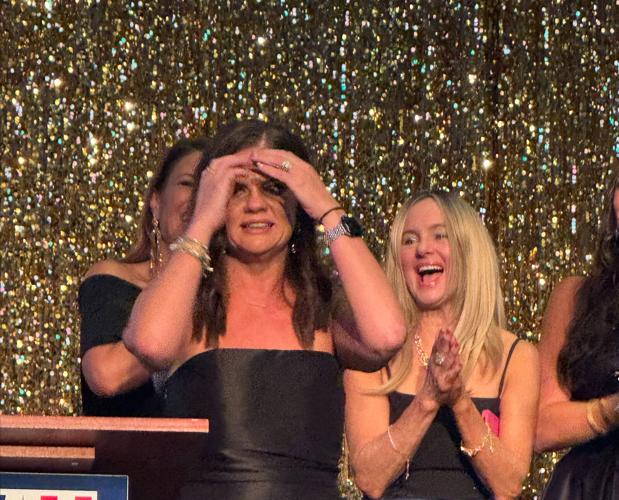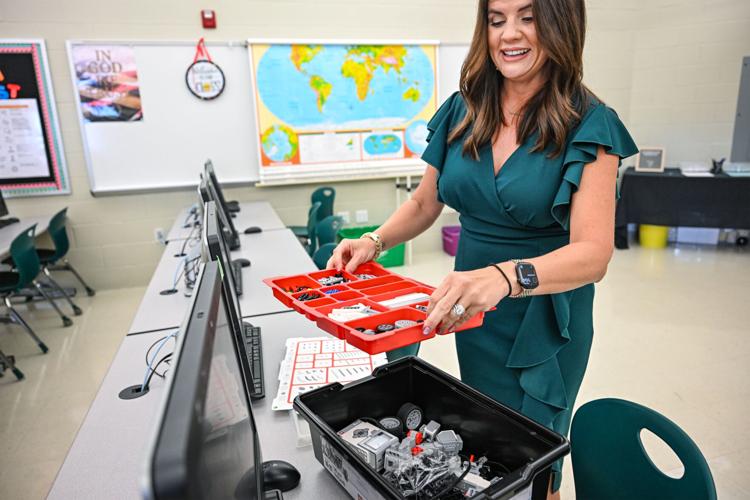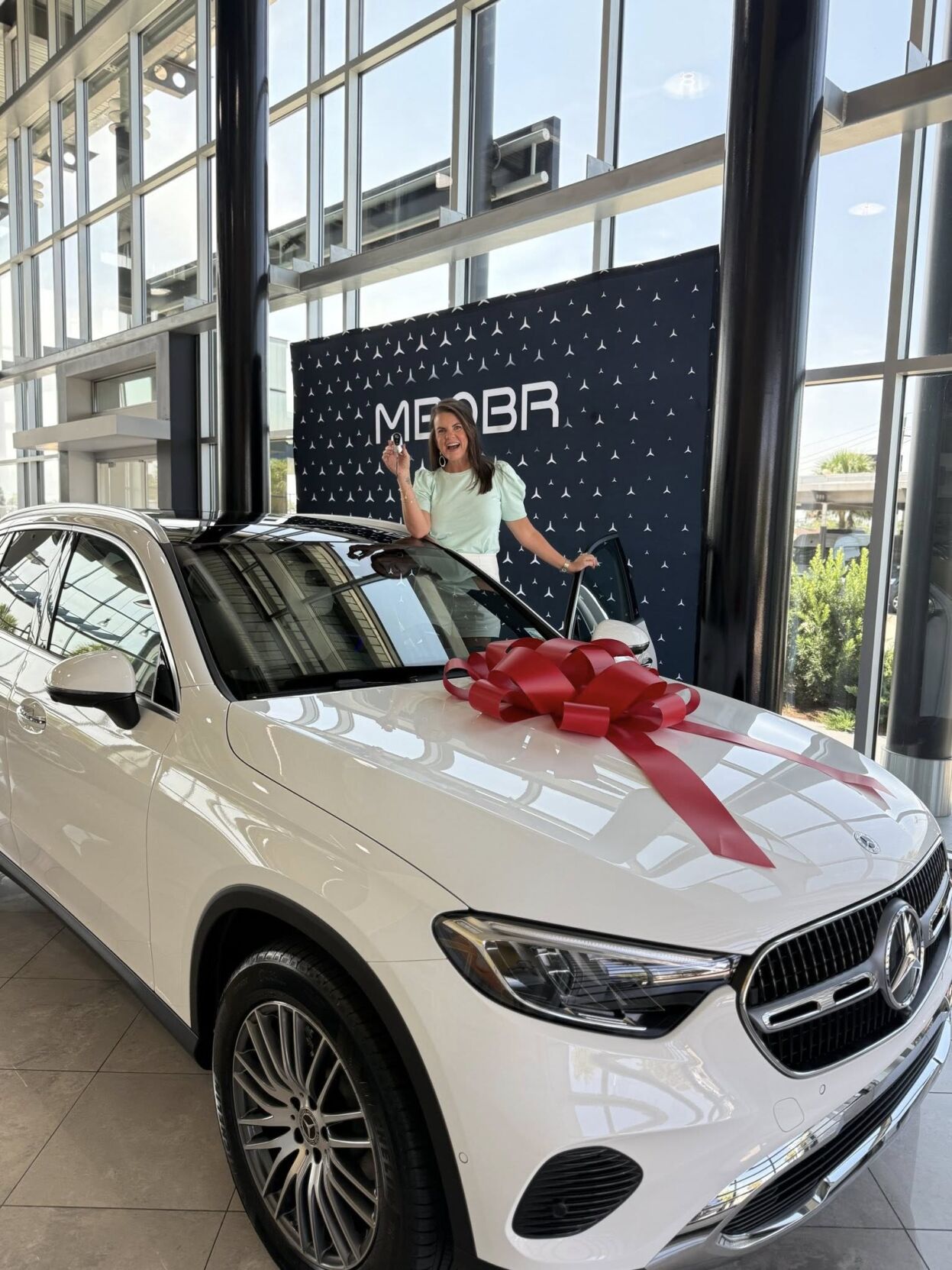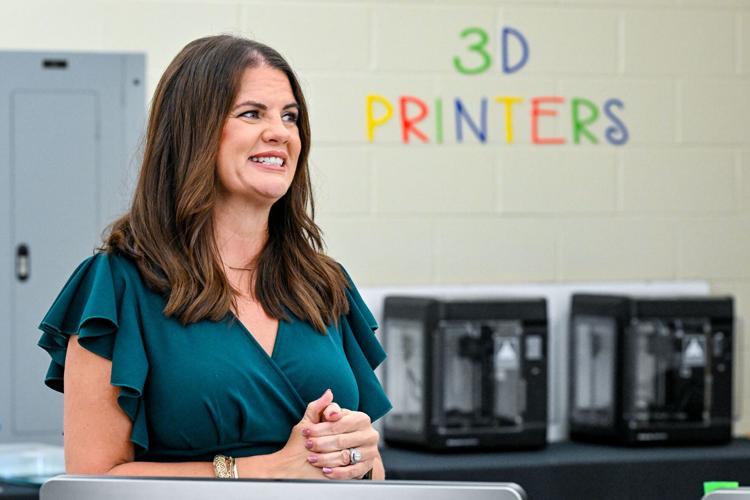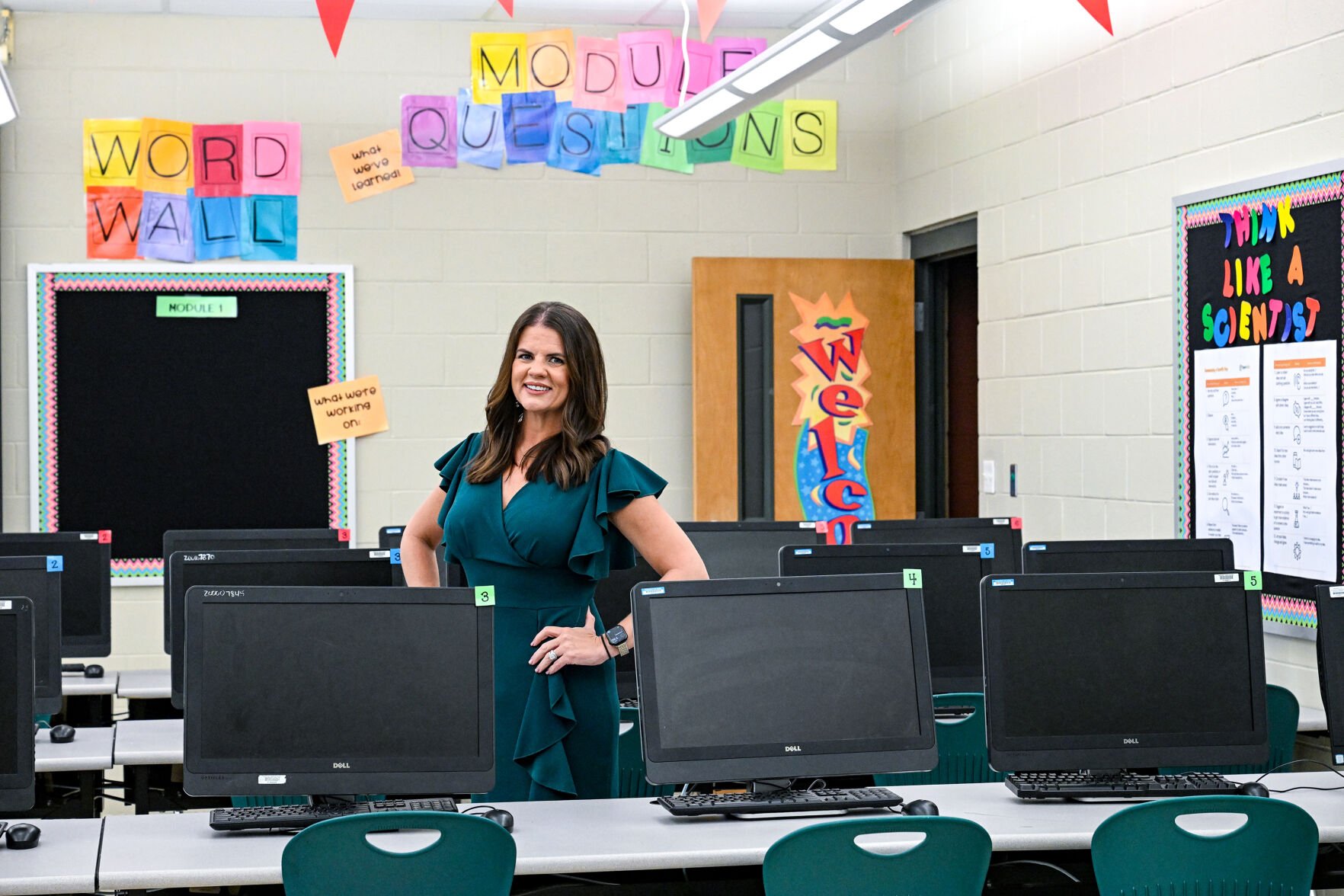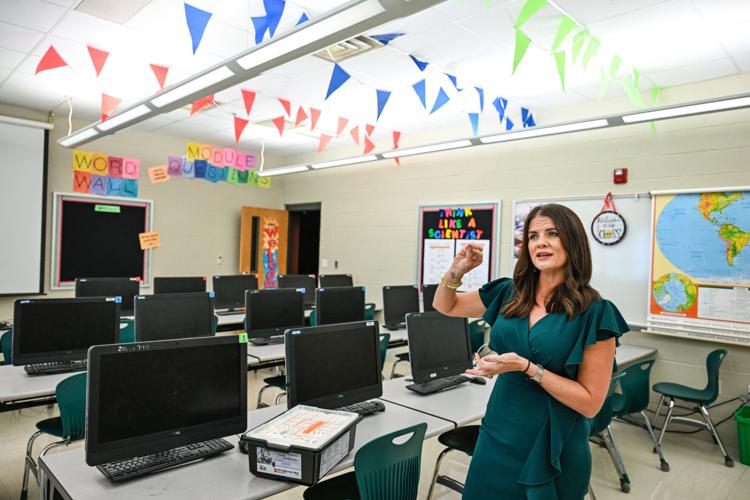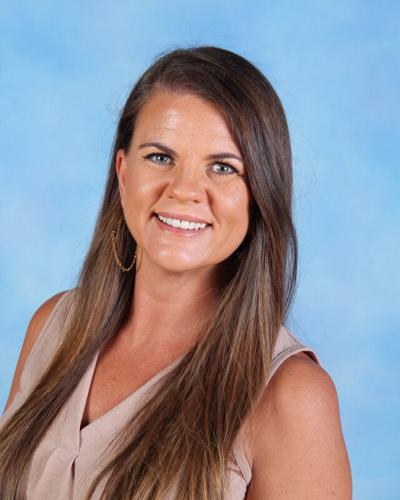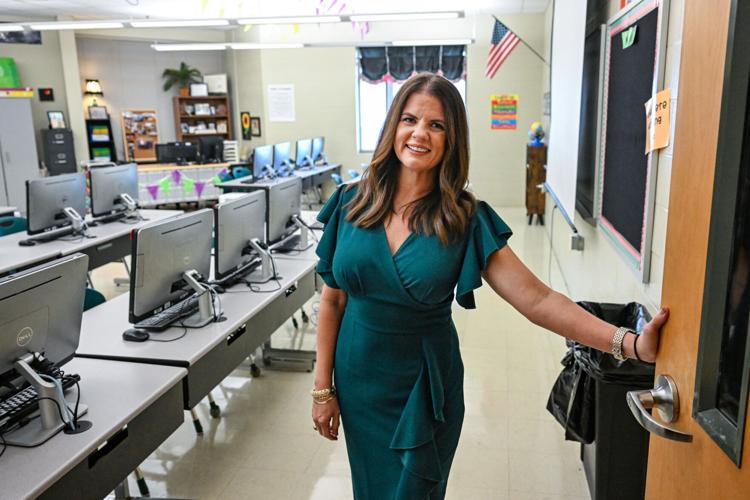When Regena Beard was recently named Louisiana Teacher of the Year, her mother was the most surprised.
“If you had told me that you were not only going to be a teacher, but state teacher of the year,” she recalls her saying, “I would have swore you were lying.”
In a career that has spanned 21 years, Beard has taught science to thousands of fifth- and sixth-graders in Zachary. It was not how she imagined her future.
“I was not one of those kids who played class,” Beard said.
Despite good grades, she was not energized by school, particularly science, the subject she later came to love so much.
“It’s not that I didn’t have great teachers,” Beard recalls. “It just wasn’t my thing.”
Career uncertainty
Growing up in Central, Beard — then known as Regena Hartley — had no immediate family members who’d graduated from college, much less any teachers in the family. Her plan was to get married and become a stay-at-home mom like Renee, her own mom.
“Absolutely not,” she recalled her mother telling her. “You are not going to do that.’”
Enrolled at Southeastern Louisiana University in Hammond, young Regena tried to sort out her future. She recalled taking career quizzes and the results kept pointing toward teaching.
She decided to give the profession a try, graduating with a bachelor’s degree in elementary education. She immediately continued her studies, earning a master's degree in education from LSU Shreveport.
For her student teaching, Beard was assigned to work with a science teacher at Southside Junior High in Denham Springs. Not expecting much, she soon found herself entranced by how her mentor made science come alive. She felt like a student all over again.
“It was so much fun,” Beard said. “I grew to love (science) through her.”
In her classroom at Copper Mill Elementary in Zachary, Beard makes it her mission to inspire skeptical children in the same way.
“If a kid comes in not loving science,” she said, “I’m like, ‘I got you, dude.’”
Professional recognition
As a mentor teacher, Beard helps other young educators in the way she was helped. She serves on both district and state-level teacher advisory councils. She also served on the state’s Let Teachers Teach workgroup established in 2023 by state Superintendent Cade Brumley.
Beard’s skill in the classroom has led to many accolades.
In 2023, she was one of five teachers named Outstanding Science Teacher of the Year by the Louisiana Science Teachers Association.
In January, she earned one of the nation’s most prestigious teaching honors: the Presidential Award for Excellence in Mathematics and Science Teaching. She had first sought the award in 2022. By the time that it was announced in January that she’d won, she’d forgotten about it.
“When I got it, it was just an email,” she recalled.
The Teacher of the Year honor was much different. It was announced at a July 26 gala held at the National WWII Museum in New Orleans in front of a large crowd.
“It has been a whirlwind,” Beard said. “I’m even kind of losing my voice at this point. It has been fantastic to say the least.”
Beard’s first job was teaching science at Northwestern Middle School, part of the relatively new Zachary community school district. The year was rough, so rough it made her think twice about her career choice.
“There were many late nights up until midnight, just trying to figure out what I would do,” she said.
Each year since has gotten better.
“I don’t have any year where I am going to do the exact same thing. I wish I did,” she laughed.
Changing practice
When she started, Beard stayed mostly at the front of the classroom in the traditional fashion: lecturing, going page by page through prepared presentations full of scientific facts.
These days, she spends much of her time sitting on the floor at the back of the room, brainstorming with her students. Their questions and curiosity shape what’s taught that day.
“Now we have flipped that script. We ask them to look around and wonder and notice things,” she said. “Every day is a mystery. How did this happen?”
She credits Louisiana’s science standards, which were unveiled in 2017, for much of that shift. The new standards slashed the number of required concepts that she had to teach to just 12, but allow her to explore them more deeply. And it pivoted away from memorization to inquiry-based instruction.
“(Students) get to unlock those secrets and figure it out, and it sticks so much better,” Beard said. “It's such a different way of teaching.”
Robot time
A decade ago, Beard was asked on the eve of a new school year to take on a new challenge: robotics.
“I had never touched a robot in my life,” she said. “I was going to learn about it with the kids.”
In that initial robotics class, her students ended up doing the teaching as much as she did, as they figured out these strange things together.
“It’s amazing what you can learn from a 10-year-old or an 11-year-old,” she said.
Against the wall of her classroom, the computer lab at Copper Mill, are two rows of kits filled with the makings of Lego’s EV robots. Students will soon painstakingly turn these parts into robots. When they finish each day, they leave their robots under a sign that says Robot Parking Garage. At the end of each year, students deconstruct their creations and return them to the plastic box.
At their computer terminals, students learn how to code instructions to direct the robots. Beard leads a computer coding club at the school. One of the activities that Beard likes to do is an “Uber ride” where students have to figure out how to get their robot to pick up and transport a passenger.
As her class has evolved, she’s branched beyond robotics. For instance, using 3D printers that she keeps in the back of the room, students construct trusses for bridges and then test them to see how they hold up when something heavy moves atop.
Beard said her biggest joy is when students take what they learn in the classroom and continue outside of school.
“When they're going home and trying stuff on their own, and they figure something out on their own, that's the jam,” she said.
She said she hopes her students are inspired to pursue science-related fields as adults, though she’s not aware to what extent her former students have. They have, however, followed Beard’s lead in another way: “I've had several that have become teachers.”


